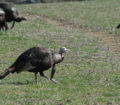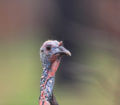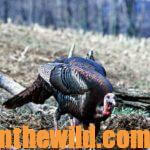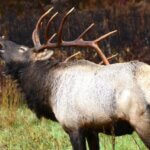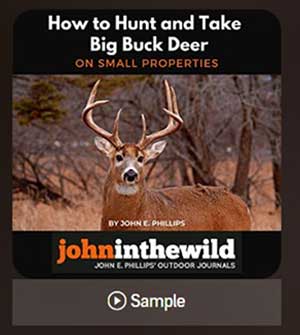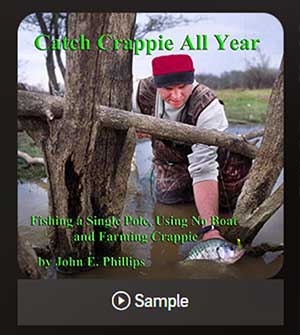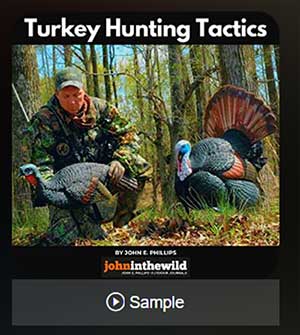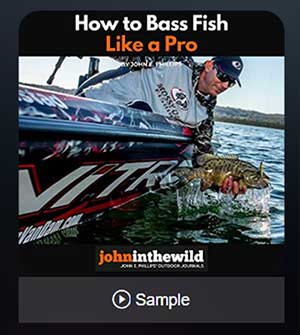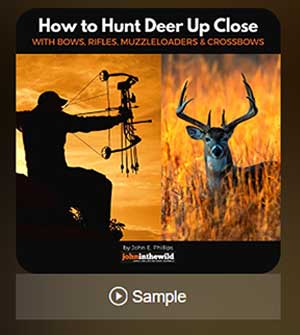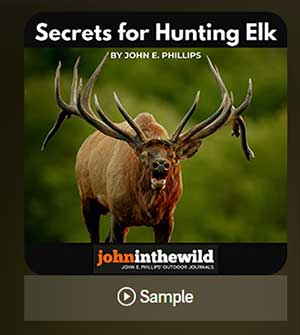John’s Note: Matt Morrett of Linglestown, Pennsylvania, won the Junior and Senior Grand National Turkey Calling contests, and the World Friction Turkey Calling Championships five times. He was only 16-years old when he won his first World Turkey Calling Championship.
* What Calls to Use to Call in a Wild Turkey Gobbler:
 In seminars, at shows and whenever I meet the public, I’m often asked, “Matt, why do you take other calls with you when you hunt turkeys? You’ve won the World Turkey Calling Contest five times with a friction call.” Well, I don’t care how well a person calls. Each turkey call makes a little different sound. On any given morning, a gobbler only may gobble to one type of turkey call. Just like you won’t go bass fishing with only one bass lure in your tackle box, because you never know on what day the bass will prefer one lure instead of the other lures, the same is true when you’re calling turkeys. I take slate calls, glass calls, aluminum friction calls, box calls, push button box calls, usually a paddle style box call and a wide variety of diaphragm calls with me when I’m hunting turkeys.
In seminars, at shows and whenever I meet the public, I’m often asked, “Matt, why do you take other calls with you when you hunt turkeys? You’ve won the World Turkey Calling Contest five times with a friction call.” Well, I don’t care how well a person calls. Each turkey call makes a little different sound. On any given morning, a gobbler only may gobble to one type of turkey call. Just like you won’t go bass fishing with only one bass lure in your tackle box, because you never know on what day the bass will prefer one lure instead of the other lures, the same is true when you’re calling turkeys. I take slate calls, glass calls, aluminum friction calls, box calls, push button box calls, usually a paddle style box call and a wide variety of diaphragm calls with me when I’m hunting turkeys.
For instance, a glass friction call can be heard much farther than a diaphragm call or a box call can be. The glass call also has a completely-different sound from a slate, a box or a diaphragm call. When the leaves are on the trees, the glass call has the ability to pierce that foliage and tickle a turkey’s ear, often better than any other call. I use various calls to sound like different turkey hens. Just like people sound differently when they’re talking, turkey hens sound differently too. Therefore, the more types of turkey calls you have, the better your chances are to sound like a hen that the ole gobbler really wants to talk to or a flock of hens, instead of just one hen.
One of the biggest mistakes that most turkey hunters make is to believe that the only call that will call a turkey is a mouth diaphragm call. If the truth is known, I believe there are more turkeys taken home to dinner by hunters who use box calls or push button calls than any other calls made. Because of the new technology we have today, call manufacturers actually can put the sound of a real live turkey in a box call, a push button call, a slate call, a glass call or some other type of new friction call that the turkey call manufacturer designs. With a diaphragm mouth call, you may have to spend years and years of practicing to be able to sound like a wild turkey. I think a hunter should use any call that will make a turkey gobble. So, if you’re going turkey hunting this spring, you can blow those mouth calls all you want to, and don’t get me wrong. I blow a mouth call also, but I don’t go into the woods without a vest full of friction calls.
* What to Do When the Gobbler Knows More about You Than You Know about Him:
 I was fortunate to grow up in Pennsylvania, when we didn’t have many turkeys to hunt. I learned that if I found a turkey that gobbled in the spring, and he was away from other hunters, he might be the only gobbler I had to hunt all spring. However, today, turkey hunters can cover a lot of country and have several turkeys to hunt in one morning. I’ve often been asked, “Matt, what do you do when you’ve missed a turkey, spooked a gobbler or hunted him so hard and so long that he quits gobbling?” My answer to that question is, “If you only have one turkey to hunt, hunt him until the end of the season, or until he rides home with you in the back of your pickup truck.”
I was fortunate to grow up in Pennsylvania, when we didn’t have many turkeys to hunt. I learned that if I found a turkey that gobbled in the spring, and he was away from other hunters, he might be the only gobbler I had to hunt all spring. However, today, turkey hunters can cover a lot of country and have several turkeys to hunt in one morning. I’ve often been asked, “Matt, what do you do when you’ve missed a turkey, spooked a gobbler or hunted him so hard and so long that he quits gobbling?” My answer to that question is, “If you only have one turkey to hunt, hunt him until the end of the season, or until he rides home with you in the back of your pickup truck.”
I learned early in my turkey-hunting career that the easiest way to consistently bag a gobbler is to learn where the turkey roosts, where he goes throughout the day, why he goes there, and where he flies up at night to return to the roost. I never consider a day of turkey hunting a loss, if I’m learning more about the gobbler I’m hunting.
Tough turkeys are the best teachers of how to hunt turkeys. You’ll soon realize that your greatest chance for success always will be when you know what the turkey wants to do, where he wants to go, and why he wants to go there, even before the turkey makes those decisions for himself. Most of the gobblers harvested today are taken because we make the gobbler do what we want him to do, especially early in the season, if the turkey hasn’t had any hunting pressure and hasn’t heard other hunters calling to him.
When we’re hunting 2-year-old gobblers, and they’re fired-up, we can make those young turkeys do pretty much what we want them to do. But after a turkey has been shot at and missed, spooked by other hunters and heard enough turkey calls to be able to tell you the manufacturer’s name on that call, he’s one of the toughest game animals to take. He probably knows more about what you’re going to do than you know about what he’s planning to do. I’m not saying turkeys are smarter than we are. But they’ve adapted their habits to stay away from danger. Often, the only way to harvest those ole smart turkeys is to be where that turkey wants to be and be in that spot before he gets there. Eventually, I know I can take that turkey.
 Often, the best call when you’re hunting a tough, well-educated gobbler is no call. When one of those bad birds hears you call, he knows where you are, who you are, and what you plan to do to him. Experience has taught him not to go to that type of calling. He knows if what he hears is a turkey hen, then she’ll come to him, and he won’t be required to go to her. Instead of cutting and loud yelping, I’ll go to the spot where that tom wants to be and cutt and yelp softly. Occasionally, I’ll scratch in the leaves and act like I’m a hen feeding, or a new hen he hasn’t heard before, and I’m not really interested in him.
Often, the best call when you’re hunting a tough, well-educated gobbler is no call. When one of those bad birds hears you call, he knows where you are, who you are, and what you plan to do to him. Experience has taught him not to go to that type of calling. He knows if what he hears is a turkey hen, then she’ll come to him, and he won’t be required to go to her. Instead of cutting and loud yelping, I’ll go to the spot where that tom wants to be and cutt and yelp softly. Occasionally, I’ll scratch in the leaves and act like I’m a hen feeding, or a new hen he hasn’t heard before, and I’m not really interested in him.
To learn more about turkey hunting, check out John E. Phillips’ print, Audible, Kindle and Nook turkey books at https://johninthewild.com/books/#turkey and at www.barnesandnoble.com. You also can download a free Kindle app that enables you to read the book on your iPad, computer or SmartPhone. You can learn more about calling turkeys by going to johninthewild.com/audio-files/ for audio turkey tapes to purchase of Lovett Williams, Rob Keck and Chris Kirby, available for download to your SmartPhone, tablet or computer. For a free copy of John E. Phillips’ “The Turkey Gobbler Getter Manual,” go to https://johninthewild.com/free-books/ to download.

